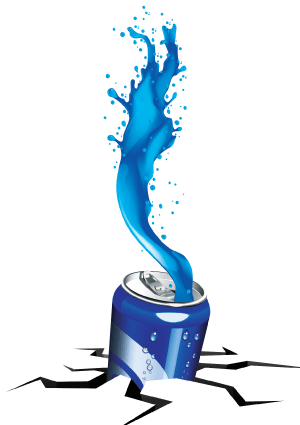Homework, tuition classes, deadlines, exams, late nights. It’s no wonder your teen needs some caffeine fix and has switched from sweetened coffee to a more affordable, on-the-go energy drink!
What is energy drink?
Energy drinks are drinks that contain caffeine, taurine, vitamins, herbal supplements and sugar or sweeteners. They often contain additives such as guarana, kola nut, yerba mate and cocoa. The main ingredient in energy drinks is caffeine. It was found that many energy drinks in the market today contain 70 – 80 mg of caffeine per 8-oz (236.58ml) serving, which is about 3 times more than the amount found in cola drinks!
Energy drinks are claimed to improve energy, stamina, athletic performance, concentration and assist in weight loss. Hence, they are a popular hit with adolescents nowadays. Not forgetting that they are easily available in any convenience store and supermarkets.
So does this mean that energy drink is dangerous to drink? Although they aren’t necessarily bad to drink, they provide no nutritive value and over consumption could be damaging. It may help with morning drowsiness but the bad news is your teen’s body will eventually depend on them to keep up with normal functioning.
Do you know?
The US Food and Drug Administration (FDA) do not limit the content of caffeine in energy drinks as they are classified as dietary supplements. However, FDA strongly advises consumers that products marketed as “energy shots” or “energy drinks” should not replace rest or sleep.
What are the side effects of energy drinks?
Listed below in descending order are the side effects of over-consumption of energy drinks gathered by the Australian Poisons Center:-
- Palpitations/ tachycardia
- Tremors/ shaking
- Agitation/ restlessness
- Gastrointestinal upset (diarrhoea/ constipation)
- Chest pain
- Dizziness
- Paraesthesia (tingling, tickling, or numbing sensation of the skin)
- Insomnia
- Respiratory distress
- Headache
Energy drinks, when consumed in moderation may have no short term adverse effects, but the effects from long term consumption are still not fully understood. Studies have shown that people who consume energy drinks are more likely to be associated to high-risk behavior, including the use of drugs, sexual risk taking, being involved in fights, not using seat belts and taking risks on a dare. They too are more likely to take up smoking and drinking.
Energy drinks contain a large amount of sugar. In a 500ml can of energy drink, there is typically 54 g of sugar which is equivalent to 13 teaspoons of sugar. According to the World Health Organisation, free sugars consumption should not be more than 10% of ones’ total energy intake per day to curb the problems of obesity or tooth decay. With prolonged use of energy drinks your teen will be at a high risk of being obese and subsequently developing diabetes.
What are free sugars?
So if your teens are one of the night owls who require a dose of caffeine in the morning, keep in mind that although it is claimed that supped-up beverages are safe, remember that over consumption of energy drinks may have harmful effects to the body. Help your teen to cut off caffeine consumption slowly as he may experience severe headaches if he stops abruptly.
It is always important for parents to know what their kids are eating and drinking. Before your teen starts taking energy drinks, make sure they are fully aware of the side effects. As far as energy drink consumption goes, it should be done in moderation by everyone, especially adolescents. Young children should be discouraged from consuming energy drinks due to the high caffeine content. This is especially so if he or she has on underlying medical condition.
An educational contribution by Malaysian Association for Adolescent Health.






Comments